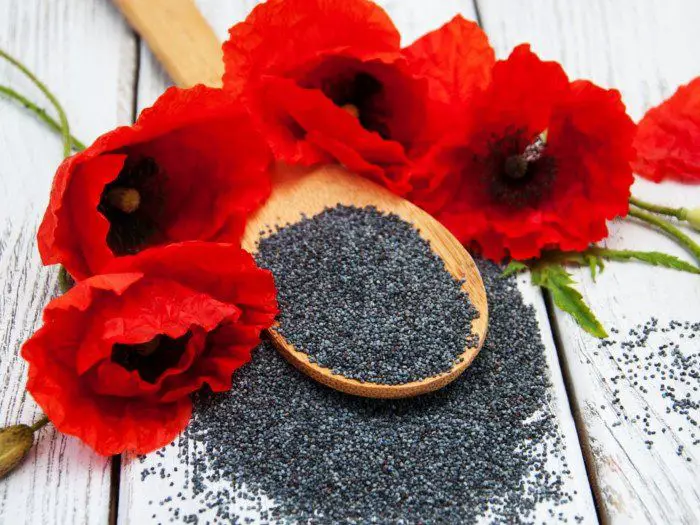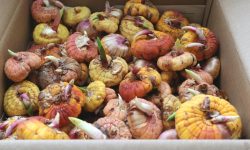Poppy seed tea is a traditional herbal infusion that has been consumed for centuries in many cultures. Known for its nutty flavor and calming qualities, the tea is prepared by steeping poppy seeds in hot water. It has been enjoyed both as a wellness drink and as a soothing beverage. Today, it is gaining popularity for its unique taste and potential benefits.
The seeds used in making the tea are derived from the opium poppy plant. They contain trace compounds that influence the body, although the seeds themselves are generally considered safe when prepared correctly. The resulting tea is distinct from other herbal infusions due to its earthy undertones and slightly nutty finish. Making poppy seed tea at home requires careful preparation to achieve the best flavor and desired effect.
Understanding Poppy Seeds

Poppy seeds are tiny black or blue-gray seeds obtained from the opium poppy plant (Papaver somniferum). They are widely used in baking, cooking, and traditional medicine. Despite coming from the same plant family as opium, culinary poppy seeds contain very low alkaloid levels. This makes them safe for consumption when properly processed. Their mild nutty flavor makes them a popular ingredient in bread, cakes, and desserts around the world.
Nutritionally, poppy seeds are rich in dietary fiber, healthy fats, and plant-based protein. They also provide essential minerals such as calcium, magnesium, iron, and zinc. These nutrients support bone health, energy production, and immune function. In addition, poppy seeds contain antioxidants that help protect the body against oxidative stress. Regular use in moderation can be part of a balanced diet.
It is important to note that unwashed poppy seeds may still contain traces of opiate alkaloids. These can cause drowsiness or other side effects if consumed in large amounts. Proper washing and preparation reduce this risk significantly. When used responsibly, poppy seeds are both nutritious and versatile. They remain a valuable addition to many cultural cuisines and wellness traditions.
Health Benefits of Poppy Seed Tea
Promotes Relaxation and Better Sleep
Poppy seed tea is often consumed for its calming properties. The seeds contain natural compounds that may help reduce mild stress and tension. Many people find that drinking the tea before bed supports restful sleep. This effect comes from its gentle sedative qualities that ease the body into relaxation.
When consumed in moderation, the tea can provide a natural way to unwind after a stressful day. It should never replace medical treatment for anxiety or insomnia, but it can be a soothing addition. Regular use in small amounts may help establish a calming evening routine.
Supports Digestive Health
Poppy seeds are rich in dietary fiber, which benefits the digestive system. The fiber content supports smooth bowel movements and reduces discomfort from occasional constipation. Drinking poppy seed tea may therefore promote better gut health.
The mild properties of the tea can also help soothe an upset stomach. Many traditional uses highlight its role in easing minor digestive issues. Including it as part of a balanced diet may enhance digestive comfort naturally.
Rich in Nutrients and Antioxidants
Poppy seeds contain essential minerals such as calcium, magnesium, and iron. These minerals support bone strength, muscle function, and oxygen transport in the blood. The tea can be a gentle way to obtain some of these nutrients.
Additionally, the seeds are rich in antioxidants that protect cells from oxidative stress. These compounds may help reduce the risk of long-term health issues linked to free radical damage. Drinking the tea occasionally can provide both comfort and nourishment.
Precautions Before Making Poppy Seed Tea
Before making poppy seed tea, it is important to understand potential risks. Poppy seeds may contain trace amounts of opiate alkaloids. These compounds can cause drowsiness, nausea, or even mild intoxication if consumed in large amounts. Washing or soaking the seeds helps reduce these substances, making the tea safer to drink. Always start with a small amount and monitor how your body reacts.
Another important precaution is knowing the source of the seeds. Not all poppy seeds sold in stores are safe for tea. Some may contain higher levels of alkaloids depending on processing and origin. Seeds meant for baking are usually safer, but even these can vary. Research the product and ensure it comes from a reliable supplier before use.
It is also essential to avoid this tea if you are pregnant, breastfeeding, or taking prescription medication. The compounds in poppy seeds can interact with certain drugs and cause harmful effects. Children and people with existing health conditions should not consume it. Always consult a healthcare provider if you are unsure about safety. Taking these steps helps reduce risks and ensures a more controlled, responsible use of poppy seed tea.
Choosing the Right Poppy Seeds
Selecting the right poppy seeds is the first step to making safe and enjoyable tea. Not all seeds available on the market are suitable for brewing. Culinary-grade poppy seeds, commonly sold for baking, are the safest choice. They usually contain fewer traces of alkaloids that can cause strong effects. Always avoid seeds that look old, dusty, or have an unusual smell, as these may be spoiled or contaminated.
When buying poppy seeds, pay attention to the packaging and labeling. Reputable brands provide clear details about origin and quality. Seeds that are well-packaged in sealed containers stay fresh longer and retain their natural flavor. Organic seeds are a better option since they are free from chemical residues. Buying in small quantities ensures you use them while they are still fresh.
It is also important to understand the difference between washed and unwashed poppy seeds. Washed seeds are safer and typically used for cooking or tea. Unwashed seeds may contain higher levels of opiates, which can be risky. Beginners should always start with washed seeds to avoid unwanted effects. Choosing carefully ensures your tea is both safe and enjoyable.
Preparing Poppy Seeds for Tea
Preparing poppy seeds properly before making tea is an important step for safety and taste. Raw seeds may contain dust, residues, or impurities that affect the final brew. Begin by rinsing the seeds under cold running water. This process helps to wash away any dirt or unwanted particles. Use a fine mesh strainer to avoid losing the small seeds during rinsing. Allow the seeds to drain completely before moving to the next step.
After rinsing, soaking is often recommended. Place the seeds in a bowl of warm water for about 15 to 20 minutes. This helps to soften the outer layer and release more flavor into the tea. Some people also gently stir the seeds during soaking to improve the extraction process. Discard the soaking water, as it may carry impurities or bitterness. Always use fresh, clean water for the actual brewing.
Crushing the seeds lightly can also enhance the tea. You can use a mortar and pestle to gently break the outer coating. Do not grind them into a fine powder, as this may alter the tea’s consistency. Once prepared, the seeds are ready for steeping in hot water. Proper preparation ensures a cleaner, smoother, and more enjoyable tea experience.
Traditional Method of Making Poppy Seed Tea
Traditional method of making poppy seed tea has been practiced for many years. It often begins with choosing unwashed poppy seeds, which retain more natural compounds. Seeds are usually placed in a clean container or jar that can be sealed tightly to prevent spills during preparation.
The next step is to add warm water, not boiling, since very hot water may alter certain compounds. The jar is then sealed and shaken vigorously for several minutes. This action helps release substances from the seed surface into the liquid. Some people repeat the shaking process several times to increase strength.
After shaking, the mixture is left to rest briefly before straining. A fine mesh strainer or cheesecloth is often used to separate seeds from the liquid. The strained tea is then poured into a glass and consumed immediately. This method provides a simple, direct way to extract flavor and other elements, but it requires careful handling and awareness of potential risks.
Modern Brewing Techniques for Better Flavor
Brewing poppy seed tea requires careful preparation to ensure safety and taste. Start by rinsing the seeds under cold water to remove dust. Place the seeds in a jar or teapot and add warm water, not boiling. This prevents bitterness and preserves natural compounds.
Shake or stir the mixture for 15–20 minutes to extract flavor. Some people prefer longer steeping, but avoid more than 30 minutes. Excessive soaking can release undesirable substances and spoil the taste. Strain the seeds carefully through a fine sieve or cheesecloth.
Always discard the seeds after brewing, as reusing them weakens the tea. Use clean, filtered water for the best flavor. The strength depends on seed quality and steeping time. Test small amounts before making a full serving. Brewing should be done responsibly, with attention to both taste and safety.
Adding Natural Flavor Enhancers
Adding natural flavor enhancers can make poppy seed tea more enjoyable. The seeds alone produce a mild, earthy taste that some find bland. To improve flavor without masking its natural qualities, try incorporating simple, plant-based ingredients. This approach not only enhances the taste but also brings additional soothing or refreshing effects to the tea.
A popular choice is adding a slice of fresh lemon or a dash of lemon juice. The citrus sharpness balances the earthy undertones of the seeds and brightens the overall flavor. Honey is another excellent option. It blends smoothly with the tea, softening bitterness while adding a gentle sweetness. Ginger, either fresh or powdered, can be used to provide warmth and a subtle spicy note.
For those who prefer a floral or calming twist, chamomile or lavender can be steeped alongside the seeds. These herbs not only elevate the aroma but also add relaxing properties. Experimenting with cinnamon, vanilla, or mint leaves can also yield unique variations. By carefully selecting natural enhancers, you can create a cup of poppy seed tea that feels personalized, flavorful, and comforting.
Cold Brew Poppy Seed Tea
Cold brew poppy seed tea is a refreshing alternative for those who prefer a smoother flavor. Unlike hot brewing, this method uses cold or room-temperature water to extract compounds more slowly. The result is a tea with a milder taste and less bitterness, making it appealing to people sensitive to strong herbal flavors. Cold brewing also helps preserve delicate notes that might otherwise be lost with heat.
To prepare cold brew tea, place washed poppy seeds into a clean container or jar. Add filtered water and cover the mixture, letting it steep for several hours or overnight. During this time, the water gradually draws out flavor and beneficial elements from the seeds. Once steeped, strain the liquid through a fine mesh or cloth to remove any seed residue.
This method not only produces a smoother drink but also offers convenience. You can make a large batch in advance and store it in the refrigerator. The chilled tea stays fresh for several days, providing an easy, ready-to-drink option whenever you want a calming beverage.
Hot Brew Poppy Seed Tea
Hot brew poppy seed tea is the most common preparation, offering both warmth and comfort. This method involves steeping the seeds in hot water to extract their natural compounds quickly. The result is a more concentrated tea compared to cold brewing. Many people prefer this version for its soothing aroma and faster preparation process.
To make hot brew tea, first rinse the seeds to remove any impurities or dust. Then, place them into a cup or teapot and pour freshly boiled water over the seeds. Allow the mixture to steep for about 20 to 30 minutes, stirring occasionally to help with extraction. The longer the steeping time, the stronger the flavor will become.
The tea can be strained through a fine mesh or cloth before serving to remove seed residue. Some choose to sweeten it with honey, sugar, or add lemon for freshness. Drinking hot brew poppy seed tea is especially enjoyable in cooler weather, bringing a cozy and calming experience. It is a simple yet effective way to enjoy the traditional flavors of the seeds in a warming beverage.
Serving Suggestions for Poppy Seed Tea
Serving poppy seed tea can be just as enjoyable as preparing it, especially when you experiment with presentation and pairings. This tea is often served in clear glass cups or teapots to highlight its natural color, which ranges from pale golden to a light amber depending on the brewing method. Adding a slice of lemon not only brings a burst of brightness but also creates an inviting look that feels refreshing and elegant. If you prefer a touch of sweetness, consider stirring in a spoonful of honey, which balances the earthy undertones of the seeds.
Poppy seed tea pairs beautifully with light snacks such as biscuits, crackers, or fruit slices, making it an ideal beverage for an afternoon pause or a calming evening ritual. For a cozy touch, serve it warm with cinnamon or nutmeg sprinkled lightly on top. Alternatively, when prepared as a cold brew, it can be enjoyed over ice with fresh mint leaves for a cooling effect. These simple additions elevate the experience, turning a basic cup of tea into a delightful ritual.
Health Considerations When Drinking Poppy Seed Tea
While poppy seed tea is often enjoyed for its calming qualities, it is important to drink it responsibly. Poppy seeds naturally contain trace alkaloids, which can have mild effects on the body. Although the levels are usually low, consuming large amounts of the tea may lead to unexpected side effects. This is why moderation should always be practiced when preparing and drinking it.
Another key point to consider is that individuals with certain health conditions should avoid this tea. For example, those who are pregnant, breastfeeding, or managing chronic illnesses may experience risks from the alkaloids present. Even small traces can interfere with medications or increase sensitivity in some people. Consulting a healthcare professional before regular use is a safe choice, especially for those with medical concerns.
Finally, it is worth noting that poppy seed tea can sometimes cause drowsiness or mild digestive discomfort. These effects vary from person to person, depending on body chemistry and the concentration of the brew. Starting with a lighter tea and observing your body’s response is a wise approach. Drinking responsibly ensures that you enjoy the soothing benefits without unwanted health complications.
Combining Poppy Seed Tea with Other Herbs
Poppy seed tea can be enhanced by combining it with other herbs, creating a soothing and balanced drink. Herbs like chamomile or lavender add calming effects, making the tea more relaxing. Peppermint can bring a refreshing note, while also aiding digestion. Mixing herbs not only improves flavor but also broadens the tea’s potential benefits.
Each combination should be chosen carefully to complement the gentle, nutty taste of poppy seeds. For instance, pairing with lemon balm creates a mildly citrusy undertone. Blending with ginger adds warmth and can help with circulation. These choices allow drinkers to tailor their tea to specific moods or health goals.
It is important to experiment slowly when mixing herbs. Start with small amounts to find the right balance in taste and effect. Some herbs may interact differently depending on the individual. A thoughtful approach ensures that the tea remains both enjoyable and safe. Over time, you may discover a favorite blend that enhances the unique qualities of poppy seed tea.
Storing Poppy Seeds Properly
Poppy seeds are delicate and can lose their flavor and potency if stored incorrectly. To preserve their freshness, keep them in an airtight container away from moisture and direct sunlight. A cool, dark pantry or cupboard is ideal for short-term storage.
For longer storage, refrigeration or freezing is recommended. Cold temperatures help slow down the natural oils in poppy seeds from turning rancid. Always ensure the seeds are dry before placing them in the fridge or freezer to avoid clumping.
When properly stored, poppy seeds can retain their flavor for up to a year. Check regularly for any signs of musty odor or bitterness, which indicate spoilage. Storing them correctly ensures your tea maintains its rich and nutty essence.
Nutritional Profile of Poppy Seed Tea
Poppy seed tea provides more than just a soothing drink; it also carries some nutritional value. The seeds contain small amounts of calcium, magnesium, and iron, which contribute to bone strength and overall vitality. Although the concentrations in tea are modest, they can still support a balanced diet.
The seeds are also rich in plant-based compounds with antioxidant properties. These help protect the body from oxidative stress and may promote better overall health. Drinking poppy seed tea in moderation can thus offer gentle wellness benefits.
It is important to note that the nutritional content of the tea is lighter than the seeds themselves. While whole seeds provide fiber and healthy fats, the tea extracts only trace minerals and compounds. Still, it remains a calming, nutritious choice for tea lovers.
Cultural Significance of Poppy Seed Tea
Poppy seed tea holds a unique place in cultural traditions across different regions of the world. In many European countries, poppy seeds are deeply tied to culinary and medicinal practices. Families have passed down recipes that incorporate poppy seeds into food and drinks, including soothing teas. These beverages were not only consumed for their taste but also for their calming properties, which made them an integral part of cultural heritage and seasonal celebrations.
In Central and Eastern Europe, poppy seeds are symbols of prosperity and fertility. They are commonly used during religious and festive events, often featured in pastries, breads, and drinks. Poppy seed tea was considered a traditional remedy for relaxation and better sleep, with generations relying on it as a household remedy. In some regions, drinking or serving the tea was also seen as a gesture of hospitality, reinforcing its importance beyond simple refreshment.
Outside Europe, the tea has appeared in folk medicine traditions, particularly where poppy cultivation was common. Some cultures valued it for its potential to ease minor discomforts and promote a sense of well-being. Over time, its significance expanded from a household remedy to a beverage that carries symbolic meaning, connecting health, tradition, and community. Today, while modern practices often focus on flavor and wellness benefits, the cultural roots of poppy seed tea remain an important reminder of its longstanding role in human history.
How to Store Poppy Seed Tea for Freshness
Proper storage plays a key role in maintaining the flavor, aroma, and potential benefits of poppy seed tea. Once the tea is brewed, it is best to let it cool to room temperature before transferring it into an airtight glass container. Glass helps preserve the natural taste better than plastic, which can absorb or alter flavors over time. Always ensure the container is sealed tightly to minimize contact with air.
Refrigeration is the most effective way to keep poppy seed tea fresh for longer periods. When stored in the refrigerator, the tea can last for up to three days without losing too much of its quality. However, it is important to label the container with the brewing date to avoid confusion. If the tea develops an unusual odor, cloudiness, or sediment, it should be discarded immediately, as this may indicate spoilage.
For those who prefer preparing larger batches, freezing is another option. By storing poppy seed tea in ice cube trays, you can portion it into small servings that are easy to thaw when needed. This method allows you to extend the shelf life while keeping the original flavor intact. Regardless of the method, proper storage ensures that every cup of poppy seed tea remains both safe and enjoyable.
Common Mistakes When Making Poppy Seed Tea
Using Old or Rancid Seeds
One of the most common mistakes when making poppy seed tea is using old or rancid seeds. Poppy seeds contain natural oils that can turn bitter when exposed to air, light, or moisture for too long. Stale seeds not only produce an unpleasant taste but also lose much of their natural potency, making the tea less effective. Always check the aroma of the seeds before using them. Fresh seeds should have a mild nutty scent, not a sour or bitter one.
To avoid this issue, store seeds in a cool, dark place inside an airtight container. If possible, keep them refrigerated to extend freshness. Buying seeds in smaller quantities also ensures they are used before going stale. Using fresh, high-quality seeds will greatly improve the flavor and consistency of your tea. Proper storage and attention to seed quality are the foundation for making a satisfying cup of poppy seed tea.
Using Too Many Seeds
Another mistake is using too many seeds at once, which can lead to negative effects. While some believe a higher quantity will increase flavor or benefits, this is not always true. Excessive seeds can make the tea overly bitter and difficult to drink. More importantly, it may introduce stronger compounds that cause unwanted side effects. Beginners often miscalculate measurements and end up with an overpowering brew.
The key to success is moderation. Start with a smaller amount and gradually adjust based on your personal preference. Focus on flavor balance rather than strength. Carefully measuring seeds also ensures consistency each time you prepare the tea. Overuse can ruin the experience and discourage you from making it again. By finding the right ratio, you can enjoy the smooth taste and subtle aroma without any unpleasant aftereffects. Responsible preparation is the safest and most enjoyable approach.
Poor Straining Technique
Improper straining is another frequent error when brewing poppy seed tea. Seeds often leave behind residue if not strained correctly. This can result in a gritty texture that makes the tea unpleasant to drink. Some people use weak or overly large strainers, which allow tiny particles to pass through. Others skip straining entirely, leaving the tea cloudy and heavy. The method you choose has a major impact on the final quality.
To improve straining, use a fine-mesh strainer, cheesecloth, or even a coffee filter. These options remove smaller particles and create a smoother texture. Pour the liquid slowly to prevent stirring up too much sediment from the bottom. If necessary, strain the tea twice for extra clarity. Proper straining not only improves taste but also creates a cleaner, more refreshing beverage. Paying attention to this simple step ensures your tea looks appealing and feels enjoyable with every sip.
FAQ About Poppy Seed Tea
How much poppy seed tea is safe to drink?
Moderation is key. A small cup per day is usually safe for most adults. Consuming large amounts may lead to drowsiness or mild digestive discomfort. Always start with a small serving to observe your body’s response.
Can children or pregnant women drink poppy seed tea?
It is not recommended. Trace alkaloids in poppy seeds can affect sensitive populations. Pregnant women, breastfeeding mothers, and children should avoid consumption to reduce potential risks.
How long does poppy seed tea stay fresh?
When stored in the refrigerator, the tea remains fresh for up to two days. For best taste, consume it immediately after brewing. Cold storage preserves flavor while preventing bacterial growth.
Can poppy seed tea be combined with other herbs?
Yes, mild herbs like chamomile, peppermint, or lemon balm enhance flavor and calming effects. Introduce one herb at a time to find your preferred combination. Avoid strong or medicinal herbs that may cause unwanted interactions.
What are common side effects of drinking poppy seed tea?
Some people may experience mild drowsiness or light digestive discomfort. Starting with a small amount helps minimize these effects. Never mix with alcohol or sedatives to avoid increased sedation.
Conclusion
Making poppy seed tea is a rewarding process that combines tradition, flavor, and potential health benefits. With simple preparation methods, you can create a soothing drink that suits your taste and lifestyle. By experimenting with steeping times, water temperatures, and natural add-ins, you can enjoy a cup that is both unique and refreshing. Remember that moderation is essential, as poppy seeds can carry more than just flavor. When enjoyed responsibly, poppy seed tea offers a calming ritual that connects you to centuries of herbal tradition while providing comfort in every sip.






